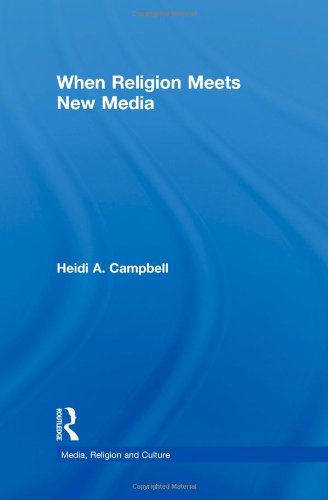

Most ebook files are in PDF format, so you can easily read them using various software such as Foxit Reader or directly on the Google Chrome browser.
Some ebook files are released by publishers in other formats such as .awz, .mobi, .epub, .fb2, etc. You may need to install specific software to read these formats on mobile/PC, such as Calibre.
Please read the tutorial at this link. https://ebooknice.com/page/post?id=faq
We offer FREE conversion to the popular formats you request; however, this may take some time. Therefore, right after payment, please email us, and we will try to provide the service as quickly as possible.
For some exceptional file formats or broken links (if any), please refrain from opening any disputes. Instead, email us first, and we will try to assist within a maximum of 6 hours.
EbookNice Team

Status:
Available0.0
0 reviewsThis lively book focuses on how different Jewish, Muslim, and Christian communities engage with new media. Rather than simply reject or accept new media, religious communities negotiate complex relationships with these technologies in light of their history and beliefs. Heidi Campbell suggests a method for studying these processes she calls the "religious-social shaping of technology" and students are asked to consider four key areas: religious tradition and history; contemporary community values and priorities; negotiation and innovating technology in light of the community; communal discourses applied to justify use.
A wealth of examples such as the Christian e-vangelism movement, Modern Islamic discourses about computers and the rise of the Jewish kosher cell phone, demonstrate the dominant strategies which emerge for religious media users, as well as the unique motivations that guide specific groups.